The last day of operations of the Hot Water Treatments Tanks at Victoria Mill is the 20th October 2023,
please call the office on 47761808 to make any bookings.


The last day of operations of the Hot Water Treatments Tanks at Victoria Mill is the 20th October 2023,
please call the office on 47761808 to make any bookings.
It is proposed to close all HCPSL Approved Seed plots this Friday the 22nd of September at 12.00 MD.
Varieties still available are:
If you wish to purchase any cane please contact the following HCPSL staff ASAP:
Stone River plot- Jason Caruso (0417622129)
Central plot- Lawrence Di Bella (0448084252)
Hawkins Creek plot- Graeme Holzberger (0428761808)
Macknade plot- Tony Mc Clintock (0447304963)
The Ingham Line and Abergowrie plots are already closed.
Thankyou for your support and thanks to our contractors who have assisted us this year.
SOIL CRC conference show cases advancements in soil science and management.
The 2023 Soil CRC conference was held in Launceston, Tasmania between the 29th -31st of August. The conference was a huge success with over 250 delegates attending the event over the 3 days.
The Soil CRC was established in 2017 to give farmers knowledge and tools they need to make decisions on complex soil management issues. It bridges the gap between soil science and farm management, ensuring that soils perform at a high-level, while ensuring profitability and long term sustainability of the soil resource for future generations.
The conference provided some good insights into the projects being worked on, new technologies, good discussions with other grower groups on business structure, operational activities, strategic focus, and issues they experience.
The Soil CRC is a national program, with the only sugar representation coming from HCPSL and Burdekin Productivity Services (BPS). HCPSL / BPS Board member-Ian Davies, HCPSL Company Manager- Lawrence Di Bella, HCPSL Senior Extension Agronomist- Adam Royle and BPS Company Manager- Rob Milla attended the conference.
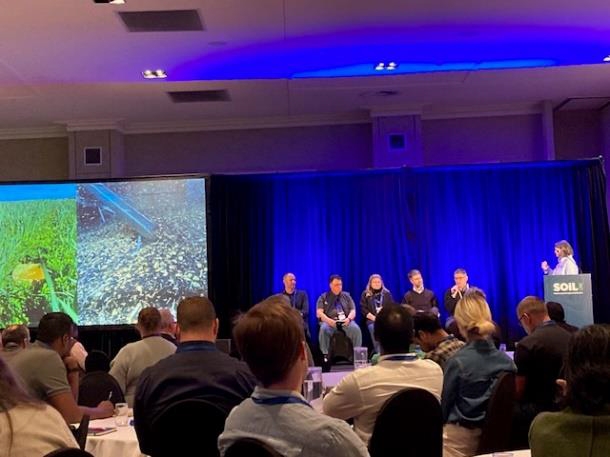
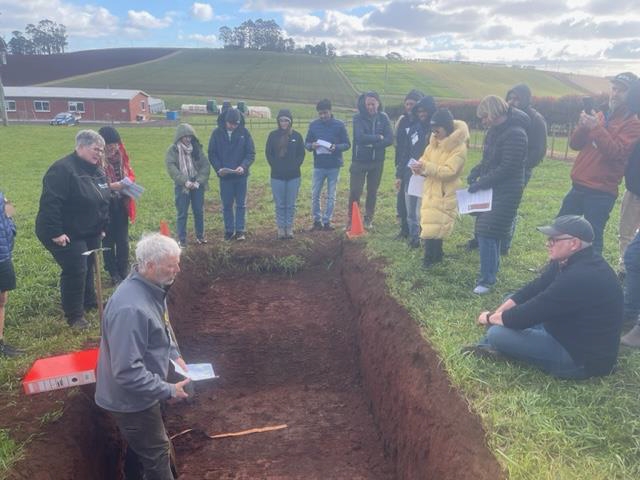
Photo above left – Lawrence Di Bella on the national panel discussing the use and science behind cover cropping.
Photo above right – You can’t go to a soil conference without digging a soil pit. Dr Richard Doyle discussing soil constraints and the origins of soils.
HCPSL and Burdekin Productivity Services (BPS) have been involved with the Soil CRC since its inception, with 20 other Grower Groups from across the country. Researchers from 13 universities are working across critical issues concerning soils, which have been identified by the Grower Groups as high priorities for their industries.
The first day of the conference consisted of numerous meetings with project teams to review project activities, outcomes, and outputs. One of the notable meetings was with teams from the University of Tasmania (UTAS), University of Newcastle, BPS and HCPSL, coming together to view the progress of the “Lab on a Chip”. This project will develop an affordable field-based tool kit for farmers to quickly determine soil properties soil chemical properties on their farm. The project will develop a user-friendly mobile and desktop interface which will access the measurement data and provide crucial soil nutrient information for the users. During the team meeting the group had the opportunity to trial the newly developed tool to assess soil nitrate, phosphorus, and pH levels.
A meeting was held with Dr Chloe Lai (University of Southern Queensland research scientist) to review the new version of an electronic tool called “Gypsy”. This tool has been developed to assist farmers and advisors develop soil ameliorant strategies for the management of sodic soils. “Gypsy” was developed in the late 1990’s and needed a significant update to include new knowledge gained on sodic soil management, develop capability to interface with EM data and to develop prescription maps for soil amendment applications which is now completed. Going forward HCPSL and BPS agronomy staff will now adopt the program to assist farmers to better manage sodic soils in their respective areas.
The second day of the conference consisted of keynote speakers, researchers and panel discussions on various topics concerning various soil matters. Presentations were of a high quality and the interactions between conference attendees was commendable.
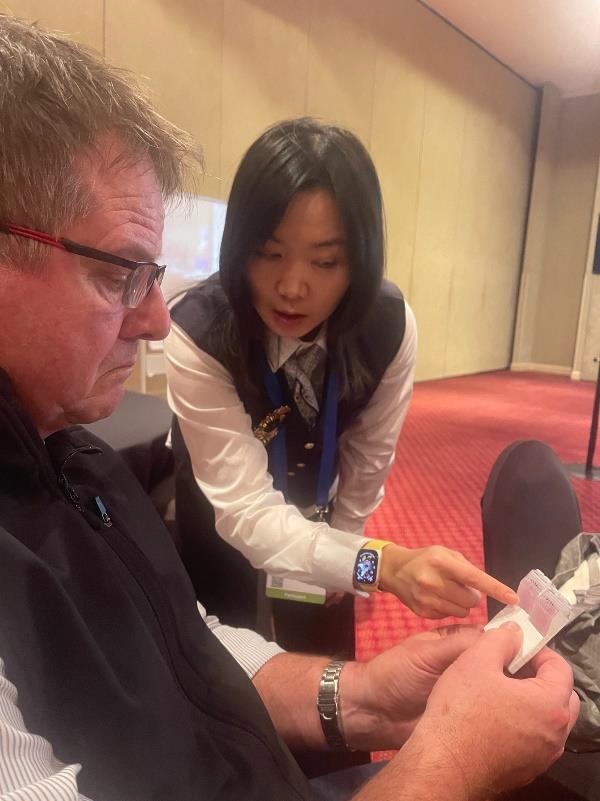
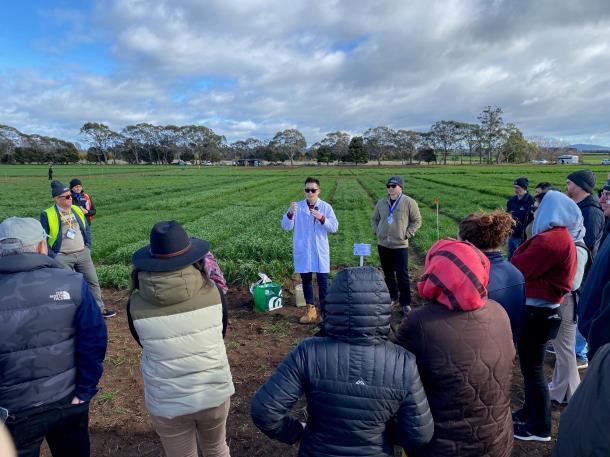
Photo on the left – Ian Davies reviewing the data from the “Lab on a Chip” project.
Photo on the right – Researchers from the “Lab on a Chip” showcasing the use of the new device on the field trip.
The third day of the conference consisted of three field trips:
Field trip 1- Launceston Environs Soil Health Trials Tour. Adam Royle attended this tour.
The highlights of the tour were the use of GM technologies in the barley breeding program to improve the plants’ ability to better manage waterlogging and crop lodging. The tour also visited Van Dieman’s Brewing which was an integrated business growing most of the materials required to make a great tasting beer. Yes, Adam did get to taste test the end product.
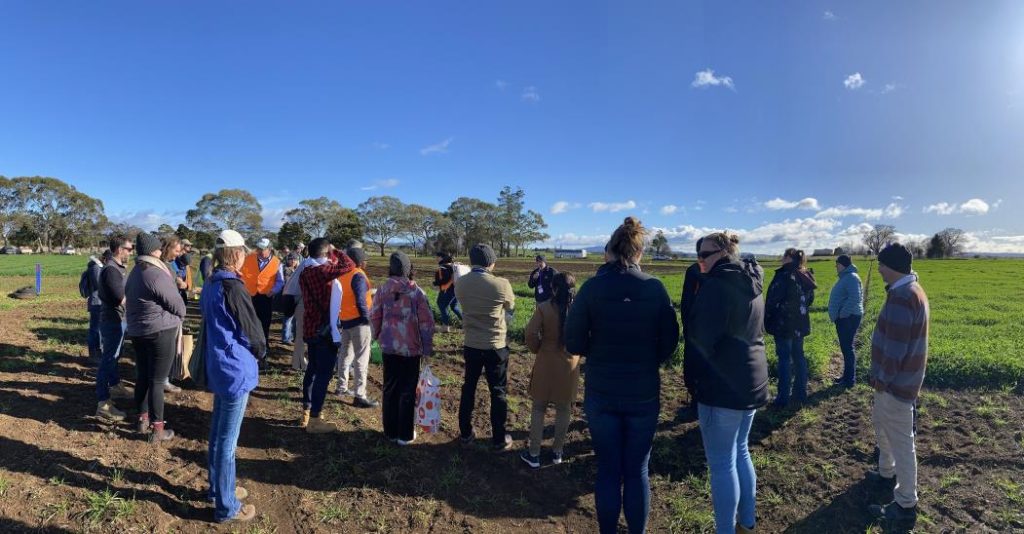
Photo above: Conference participants at the barley breeding waterlogging management site.
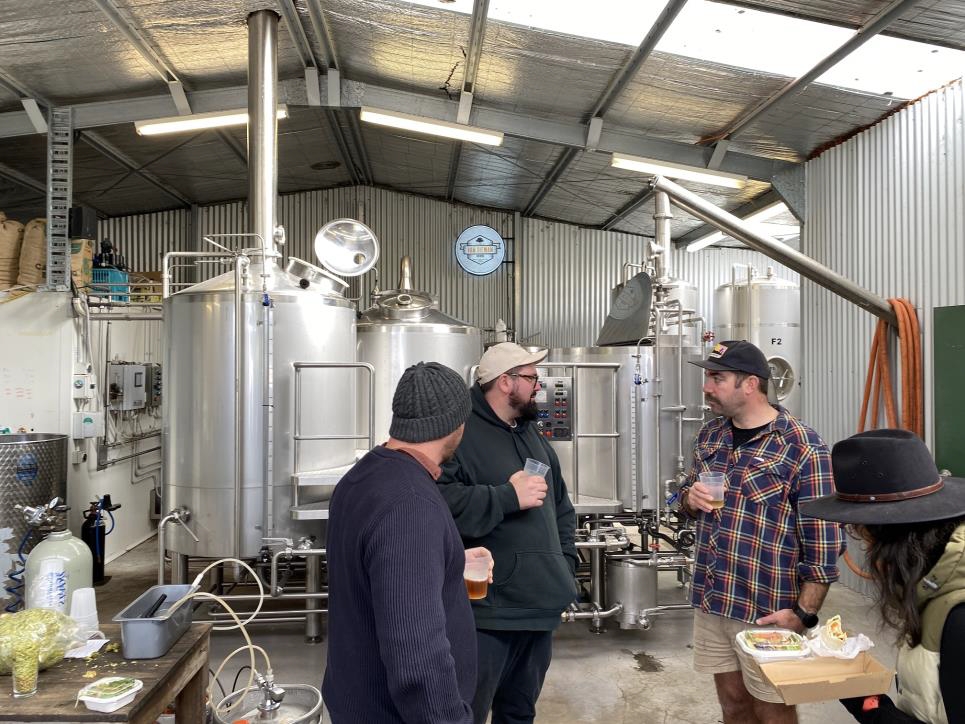
Photo above- Conference delegates tasting the end product- beer at Van Dieman’s Brewing.
Field trip 2- Midlands soils and Irrigated Landscapes Tour.
Ian Davies attended this tour. The highlights of this tour were the use of AI, sensors and technologies used to manage irrigation systems and their interaction with soils. The tour was hosted by an impressive 2600ha dairy farm operation. The farmer was forward thinking, valued data to make informed decisions, very tech savy using data to advance his business and fully understood the interactions between the pasture, soils, water inputs and milk production. A number of new novel soil measurement tools were also showcased on this field trip.
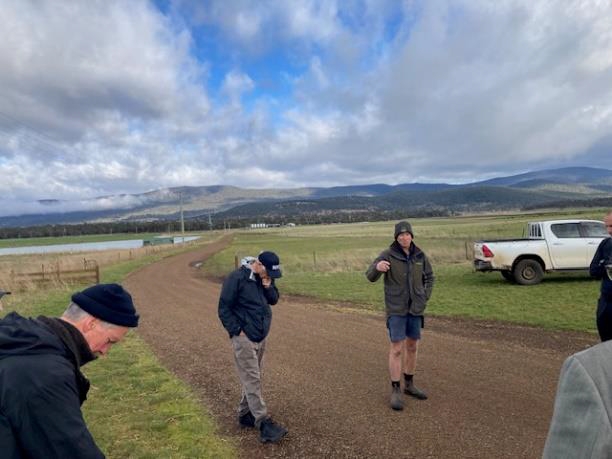
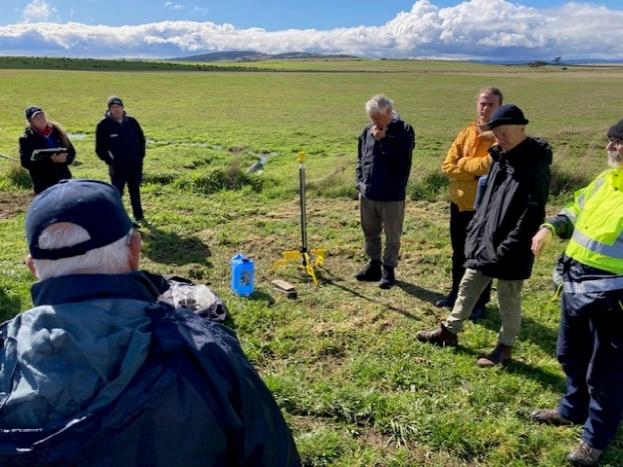
Photo above left- Dairy producer discussing with conference participants the advantages of data and technologies.
Photo above right- A new tool that determines infiltration rate. A laser reader at the top of the column reads the distance (volume) and calculates the time for the tube of water to be absorbed by the ground (purchase price $1,000). This information is used to better management irrigation water.
Field trip 3- Northwest Coast Soil and Landscape Health Tour.
Lawrence Di Bella attended this tour visiting the Tasmanian Institute of Agriculture- Forthside Vegetable Research Facility. At this site the tour group visited the long-term cover crop trial to discuss the soil science behind the use of cover crops obtained from trials conducted across the country. Novel soil conservation methods to better manage soil erosion were observed and smart irrigation systems to better manage irrigation and its interaction with soils were showcased.
The Soil CRC was funded for 10 years and is now at year 6 of its life. Significant learnings have been already made concerning the soil and its management, numerous smart tools are nearing commercial use, data systems to better manage soils are being developed and assessed. The investment into the Soil CRC has and will significantly contribute the advancement of agriculture well past the completion of the program.
For further information on the Soil CRC please go to www.soilcrc.com.au
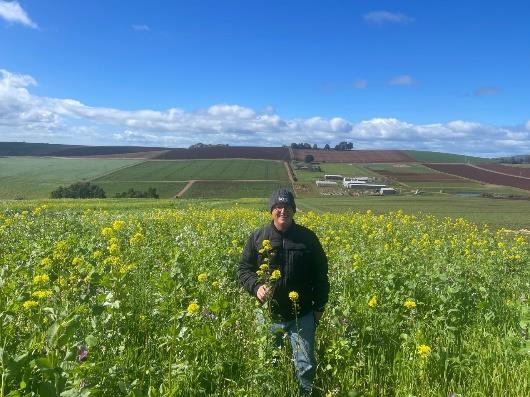
Photo above- Lawrence Di Bella at the long-term cover cropping trial at the Forthside Vegetable Research Facility near Davenport, Tasmania.
Recent Comments